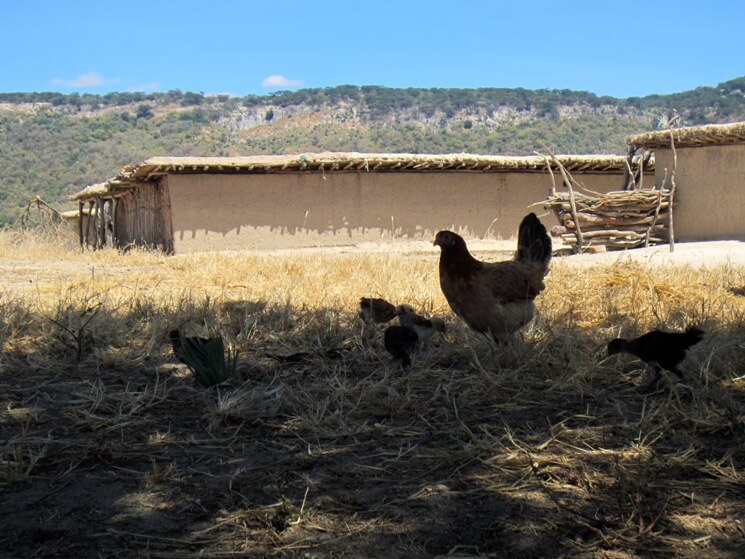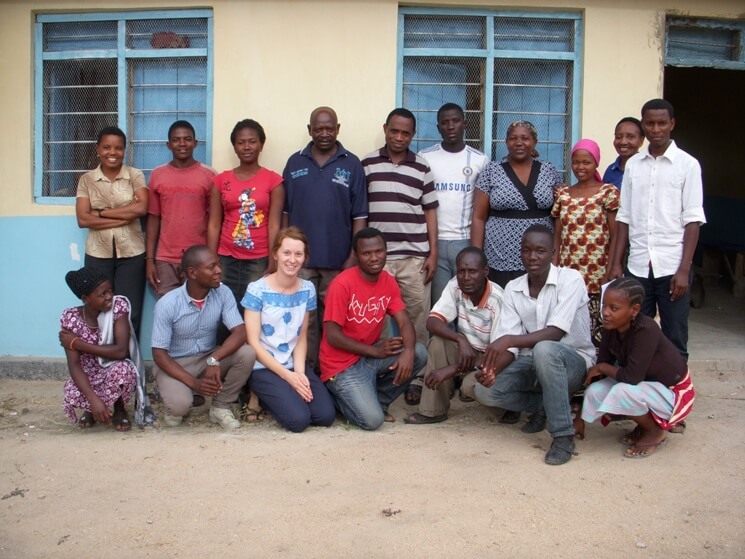The African Chicken Project
It was one of those “what if” moments, sitting in a hostel in London reading an advertisement for a research assistant on a village poultry project in Africa. At that stage my experience of Africa involved a couple of weeks backpacking in Morocco, and the number of chickens I’d treated could be counted on one hand. Maybe two. And yet the prospect of moving from a vet in clinical practice to one in international research for development was an attractive one.
I had started my career in rural mixed practice, with days that might involve chocolate-eating Labradors, horses that had run through wire fences, geriatric cats, or the many obstetric dilemmas of dairy cattle. The allure of life as a vet in the United Kingdom (James Herriot-style) led me to leave behind an excellent first job, for a couple of years alternating between locum jobs and stints of European travel. There was a summer working on the little island of Guernsey, a long-term struggle to understand the thick accents of Cornish farmers, and a ridiculously overpaid 24-hour shift a stone’s throw from Buckingham Palace.
But amidst all the interesting and heart-warming cases were the many mundane and emotionally-draining aspects of veterinary practice. Vaccination after vaccination, non-compliant owners, people with sick animals but no money, dogs with so-called skin tumours that turned out to be nipples… I was ready for another full-time position, but I started to wonder about options outside clinical practice.
My interest turned to the world of “One Health”, the great intersection of human, animal and environmental health. Improving food security in sub-Saharan Africa sounded like an appealing research area, but I wasn’t sure I had the right skills or background. I applied for a one-year Masters program in Edinburgh, was accepted, baulked at the cost and decided to apply for the African chicken research opportunity after all.
Just over twelve months on, I’m on a lengthy stopover in Doha on my way home from three weeks of fieldwork in Tanzania and a presentation at an FAO workshop in Zimbabwe. I’m combining part-time work as a research assistant with full-time life as a PhD student. When I refer to weekend shifts at a local clinic in Sydney as my “real vet” job, I’m only half-joking. Most days I don’t feel very much like a vet, or at least not the sort that I imagined I was going to be.
I feel strongly about the need to improve food and nutrition security in developing countries, and about the role of vets in facing this challenge. Scavenging chickens are kept in small numbers by people throughout the developing world. Community-based vaccination programs against Newcastle disease, a leading cause of mortality in these settings, offer the potential to improve the health and welfare of poultry, allowing their numbers to increase – and for chickens to contribute to household income and diets in a more substantial way.

In the last year, I’ve learnt a huge amount: about chickens, food security, research methodology, African geography, and the practicalities of conducting a large-scale research project in villages without electricity, phone or internet access. I’m sure the steep learning curve isn’t going to taper off any time soon, but I’m glad to have discovered the exciting and fulfilling world of international agricultural research.



